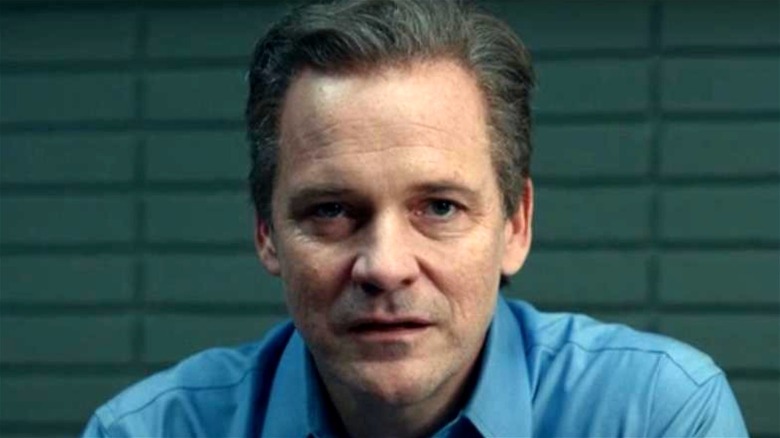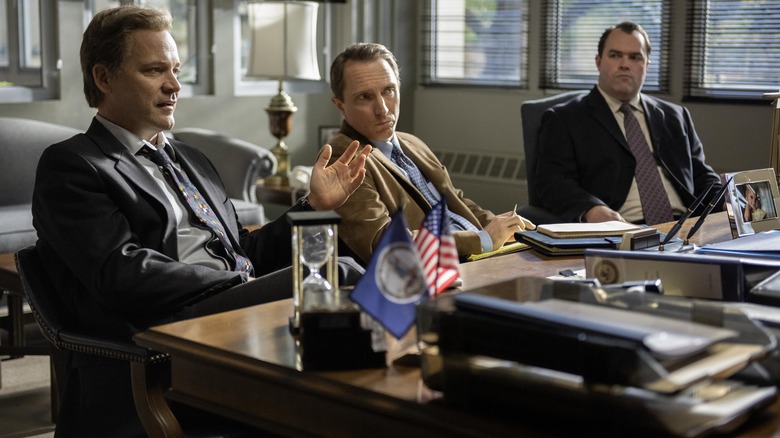Is Dopesick Based On A True Story?
Hulu's original series "Dopesick" is a sprawling dramatized account of America's opioid crisis. From the stories of patients who became addicted to OxyContin after being prescribed the drug by their trusted doctors to the pharmaceutical sales reps who peddled lies to get the pills into as many offices as possible, the series is multi-faceted in its approach to the story. Anybody who has read the news in recent years knows that the opioid crisis itself is very real. However, you may be wondering whether the characters and their stories in "Dopesick" are taken from actual accounts, or if they were invented for the series?
The key to answering this question is to look at the characters in "Dopesick" themselves. There's Dr. Samuel Finnix (Michael Keaton), a doctor in Virginia coal-mining country who beings prescribing OxyContin to his patients, a young miner named Betsy Mallum (Kaitlyn Dever) who starts taking the drug after getting injured on the job, and Richard Sackler (Michael Stuhlbarg), the head of the pharmaceutical company that created OxyContin, among others. While characters like Dr. Finnix and Betsy were created for the show, Richard Sackler is a real person.
"Dopesick" tells its story using a mix of made-up characters and ones directly based on actual people and in interviews about the series, the creative team has explained exactly why that is.
Dopesick is a scripted drama that is rooted in fact
"Dopesick" is based on a non-fiction book titled "Dopesick: Dealers, Doctors and the Drug Company that Addicted America" by journalist Beth Macy. During an interview with NPR about the series, "All Things Considered" host Michel Martin said to Macy, "So the series creates characters, but I take it these are based on people that you really reported on." Macy replied, "Absolutely," confirming that many of the characters in the show are inspired by the stories of real people, but are ultimately works of fiction.
Series creator Danny Strong spoke more about this decision during an interview with AssignmentX. He explained that when it came to the characters who represented the everyday people who got wrapped up in the opioid epidemic, using fictionalized composite characters as opposed to ones that are based directly on real people allowed the series to "create a more universal experience."
Of course, though, there are plenty of characters on the show that do have real-life counterparts. "The real people that we were going to use laid themselves out in a sort of obvious way," Strong said. "I wanted the U.S. Attorney's case in Western Virginia to be the spine of the story ... So, let's just use the real lawyers, the real prosecutors, and the real U.S. Attorney. When we're in Purdue Pharma, let's just use the Sackler family."
This mix of fictionalized composite characters and real-life figures allows the show to tell a compelling story that is still rooted in fact. "Dopesick" is currently streaming on Hulu.

